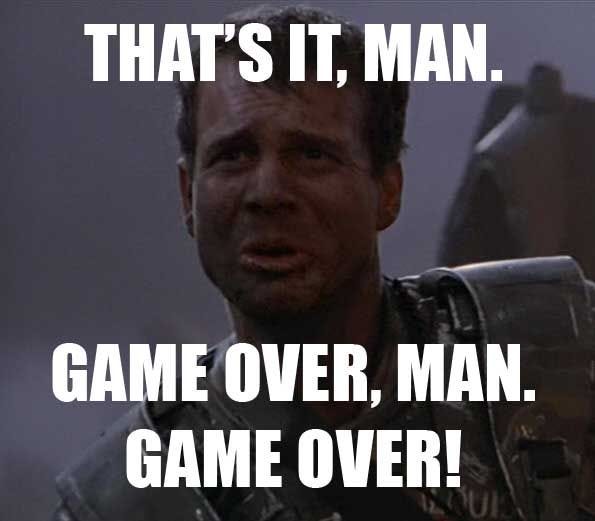I’m a big fan if video games. They’re an epic way for me to wind down, be it wandering through the tundra of Skyrim picking flowers or blowing the shit out of stuff in Halo.
Something I’d never really considered before was how video games are intrinsically linked to the idea of impermanence. As a Buddhist, that’s fascinating. We’re always harping on about the only thing that’s constant is change, and how not to attach to anything because nothing lasts.
There’s nothing more impermanent that I can think of than our existence inside a video game. I’ve purposefully used that word existence, because when we’re in the thick of a good gaming session, our attention is solely focused upon it. Both tuned in and tuned out.
Impermanence is an absolute cornerstone of Buddhist philosophy. All that exists will not exist forever. Nothing lasts. As human beings, we’re really good at clutching on to things and thinking they’ll just stay the same. Jobs, relationships, us. It’s this idea of attachment that can make life so painful. It’s why loss hurts us so deeply.
It’s ironic that the very nature of us, the self, is a constantly changing entity. Not that we necessarily see it that way. I feel as though I’m slinging phrases at you like wordy shurikens in this newsletter, but I’m gonna keep going:
The observer cannot observe itself
Leaving Kant out of this for a moment and his idea around the unity of self (and don’t even start on polypsychism), I want to be clear that when I talk about the self I’m referring to the ego. The ego cannot observe itself. In strict terms an observer can observe itself, but then the subject is no longer the subject when the observer observes themselves.
Brain fucked enough yet?
Good. Back to video games and impermanence. If you do play or have played video games, then this will make a lot more sense to you. Especially those sorts of games where we’re heavily invested in a story line and the outcome of our character.
Take the Witcher 3 for example. What a great plot. You get pulled into it and essentially become Geralt of Rivia. When you finally complete the game (I’m leaving all spoilers out of this), there’s a genuine sense of loss. What am I going to do now? It’s all done. No more Geralt.
You turn off the computer or console and that’s it. Back to your own existence with that little ache in your mind that the adventure is over.
I’d say the feeling borders on an existential loss. What’s so powerful about video games is the level of engagement that our mind participates in when we’re playing them. It’s so much deeper than when we’re involved in a movie (books I’d say are somewhere in-between, but let me know your opinion in the comments or at theobservingi@substack.com).
We’re in it. Immersed in the flow state. Outside of the game there’s nothing else. Giving us that space to not think about whatever troubles are befalling our lives when we’ve got a controller in our sweaty Dorrito-dusted hands.
If we zoom out for a moment, what happens when our adventure in this life is done? The one thing that we are most deeply attached to above all else is our own existence, but we often live as though our existence is permanent. As though our time is infinite.
The Stoics have this idea of something called memento mori, meaning “remember that you are going to die”. It’s not a morbid thing. It’s not meant to make us depressed and apathetic. It’s purpose is, in fact, the exact opposite.
Remember that you are going to die so that you can start making the most of the time that you have. Take charge. Have agency. Stop putting shit off and stop making bad choices that waste your time and lead you down blind alleys.
Ultimately, what I believe video games can do is help train us to become accustomed to impermanence. Perhaps the more we experience the ethereal realm of video games, the better we can get at handling the ethereal nature of things in our own lives too. Perhaps we can learn to embrace impermanence. To live it.
Much love
David




